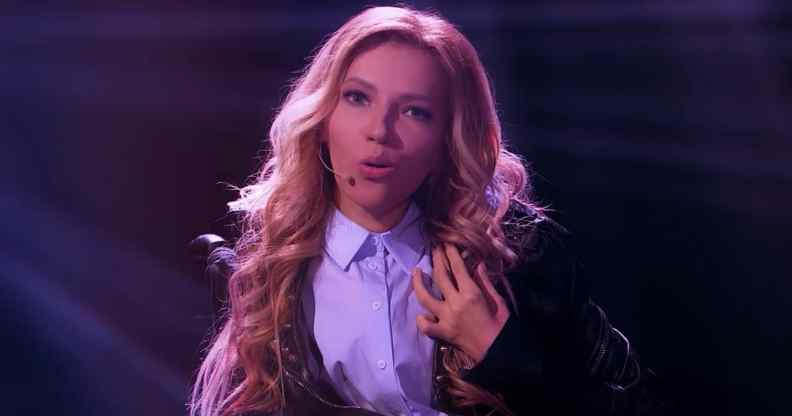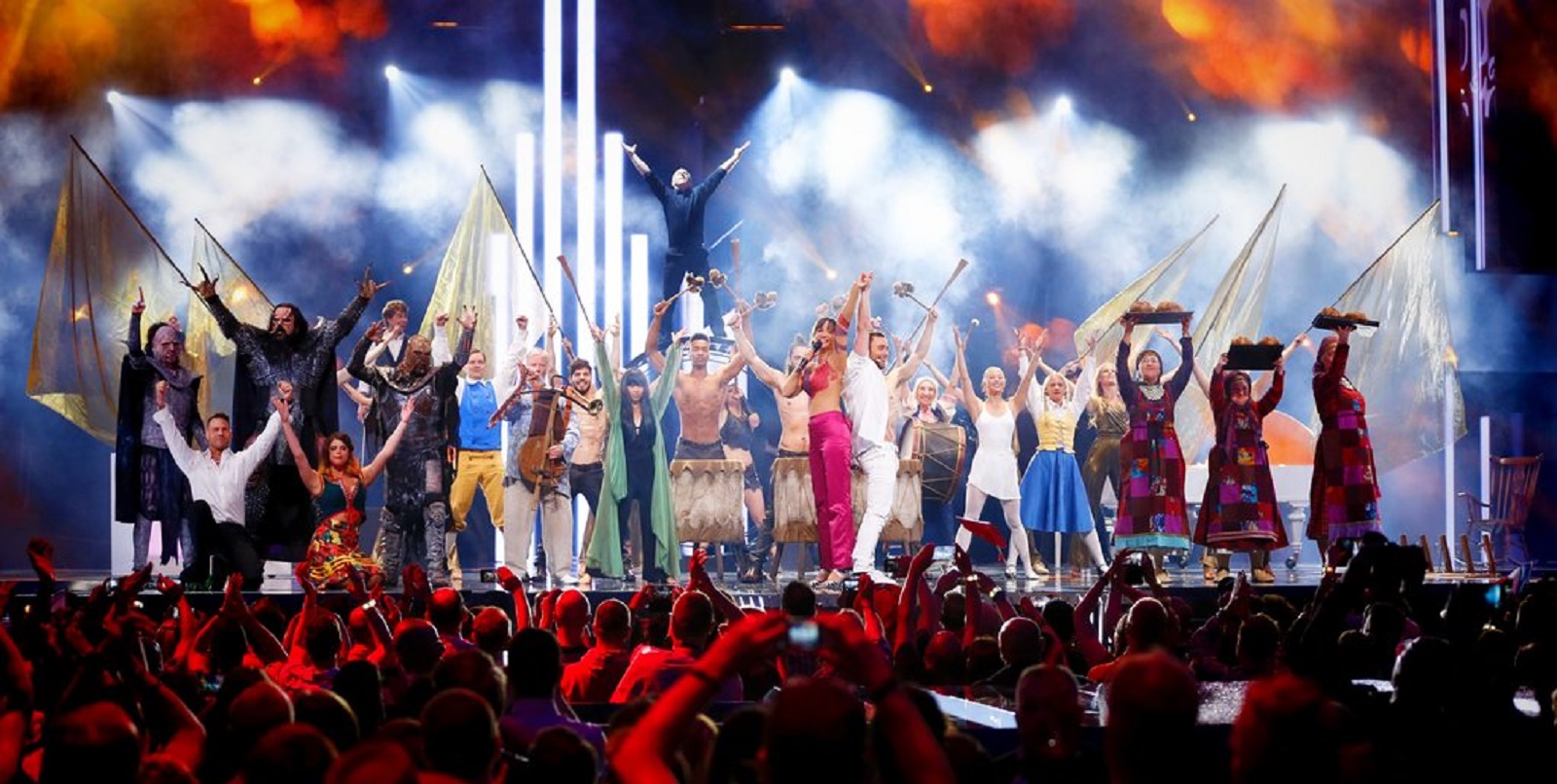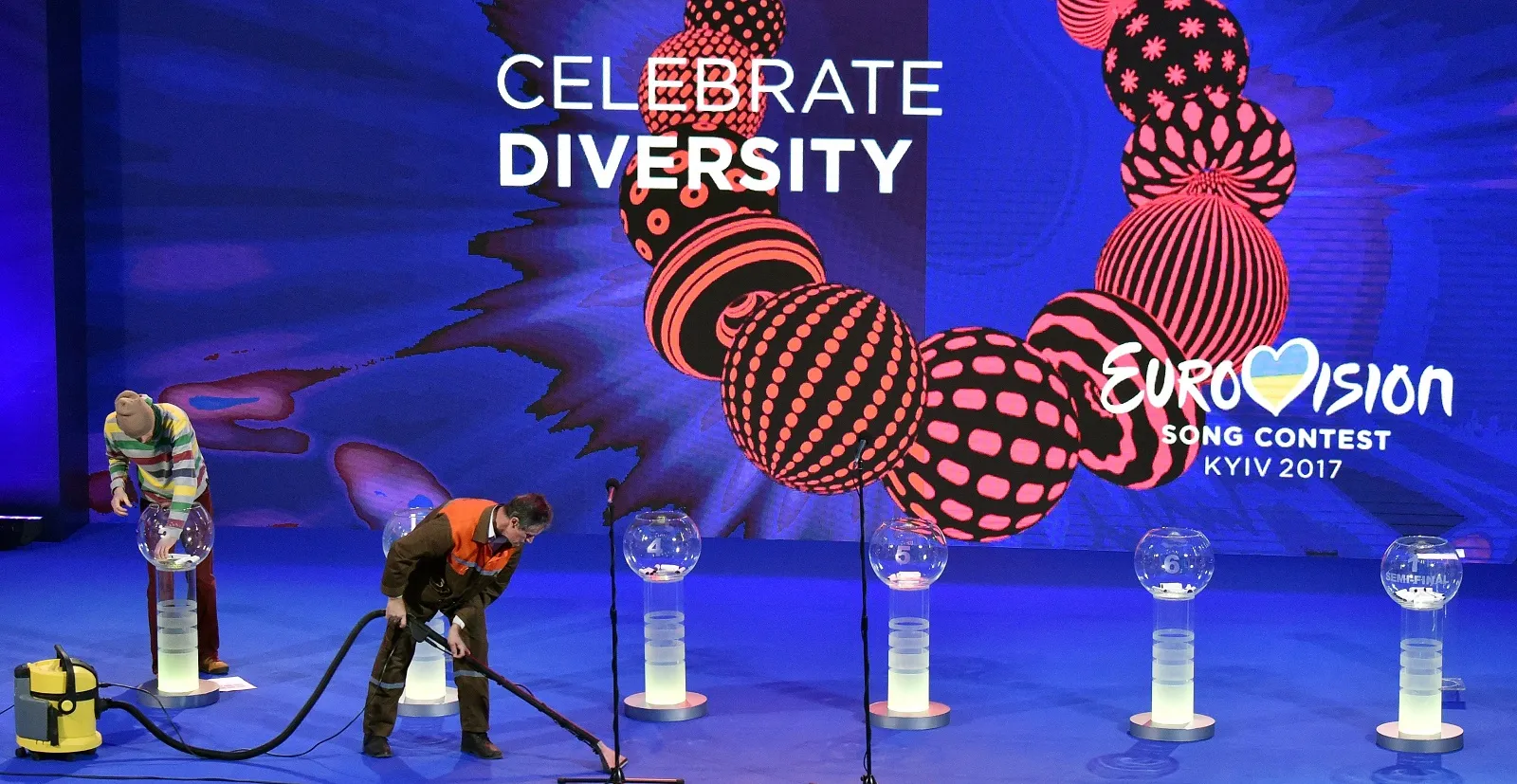Russia pulls out of Eurovision Song Contest in Kyiv after dispute with Ukraine

Russia has withdrawn from the 2017 Eurovision Song Contest after its contestant was banned from entering host country Ukraine.
The Eurovision Song Contest begins in the Ukrainian capital Kyiv on May 9, taking place in the country after the victory of Crimean Tartar singer Jamala in 2016.
However, the contest was thrown into crisis when Ukraine’s security services announced that Russian entrant Yulia Samoylova has been banned from the country, and would not be permitted to attend.
Her ban came after revelations that she has performed in Crimea since Russia annexed the Ukranian peninsula.
All people known to have travelled to Crimea via Russia are banned from Ukraine, as they are considered to have illegally entered Ukrainian territory.
The European Broadcasting Union had attempting to broker a compromise between the two countries, offering Russia’s singer the chance to perform via satellite – which both countries flatly rejected.
After talks on the dispute failed, Russia today announced that it would withdraw from the contest.
Channel One, the Russian broadcaster of the contest, confirmed today that it would drop out and cease to broadcast the contest entirely.
It said: “Remote performance discriminates against the Russian participant and is contrary to the rules and principles of competition. Replacing Yulia Samoylova with another artist, in our opinion, cannot even be considered.
“In this situation, Channel One does not consider it possible to broadcast the Eurovision Song Contest 2017.”
In a statement, the EBU responded: “These proposals were to either take part via satellite or to change their chosen artist to one who could legally travel to Ukraine for the duration of the Contest.
“Sadly both proposals have been rejected by Channel One and they have now announced they do not intend to broadcast the Eurovision Song Contest 2017.
“Unfortunately this means Russia will no longer be able to take part in this year’s competition. We very much wanted all 43 countries to be able to participate and did all we could to achieve this.”
Frank Dieter Freiling, Chairman of the Eurovision Song Contest Reference Group, the event’s steering committee, said: “We strongly condemn the Ukrainian authorities’ decision to impose a travel ban on Julia Samoylova as we believe it thoroughly undermines the integrity and non-political nature of the Eurovision Song Contest and its mission to bring all nations together in friendly competition.
“However, preparations continue apace for the Eurovision Song Contest in the host city Kyiv. Our top priority remains to produce a spectacular Eurovision Song Contest with our Member UA:PBC in May.”
European Broadcasting Union execs previously threatened to pull the contest out of Kyiv over behind-the-scenes troubles, which has seen major decisions run months behind schedule.
21 staff from Ukrainian broadcaster UA:PBC recently walked out en masse – including executive producers, the event manager and head of security.
The European Broadcasting Union blamed “staffing matters” for the crisis, but the departing staff warned in an open letter that the contest was facing serious hurdles and that staff had been “completely blocked” from making any progress.

A decision to withdraw the contest from Ukraine was averted just months ago after the Ukrainian Parliament issued extra emergency funding to cover the cost of the contest, after delays on security, site preparation, set design, ticketing and transport.
The competition, which is set to be held in Kiev, usually sees singers from across Europe join in.
Ingrid Deltenre, head of the European Broadcasting Union, previously penned a letter to the prime minister of Ukraine, Volodymyr Groysman, urging him to allow the Russian singer to take part.
The EBU warned that the current ban was “unacceptable” and Ukraine “might be excluded from future events”, unless the ban is lifted.

Deltenre said that unless Samoilova is permitted to play then it “would certainly have a very big negative impact on Ukraine’s international reputation as a modern, democratic European nation.
“We are increasingly frustrated, in fact angry, that this year’s competition is being used as a tool in the ongoing confrontation between the Russian Federation and Ukraine,” she added.
The two countries have seen rising tensions after Russia annexed Crimea in 2014.

